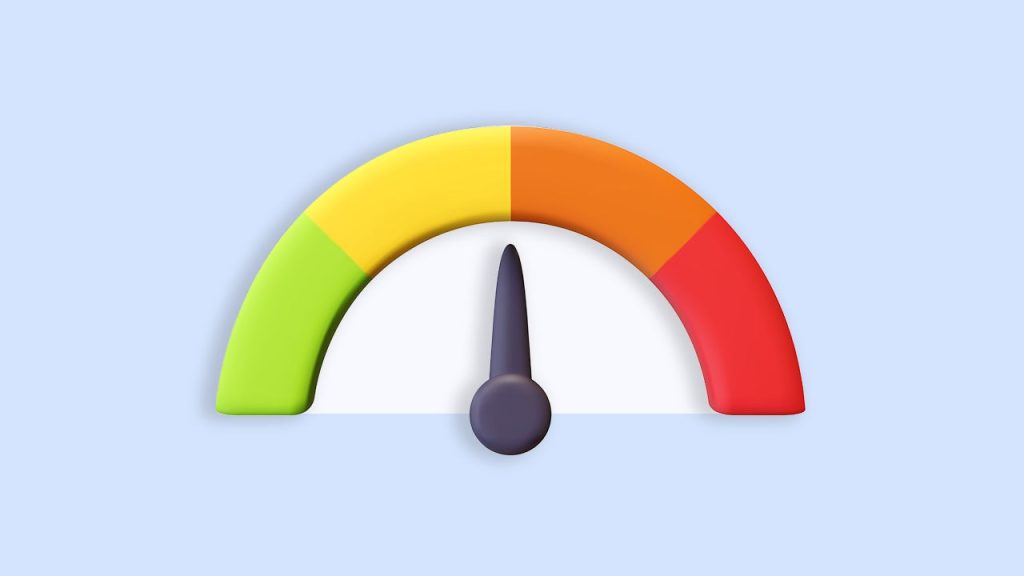Key takeaways
- You’ll typically need a credit score of at least 580 to qualify for a personal loan, but the higher your score, the more affordable your loan rate.
- Lenders want to see that loan applicants have a history of responsibly paying debt, and your credit score provides a window into your past behavior.
- The FICO credit scoring system ranges from 300 to 850, and is used by most lenders.
The average FICO credit score in the U.S. was 715 in early 2025, down a few points thanks to rising student loan delinquencies. Your chances of getting a low interest personal loan rate are much higher if you have good-to-excellent credit, typically a score of 740 and above.
When you apply for a personal loan, your credit score is one of the most important factors lenders consider. Understanding how your score impacts your loan — and what you can do to improve it — can help you secure the most affordable financing possible.
What credit score is needed for a personal loan?
Most lenders require a minimum credit score of around 580 to qualify for a personal loan, though the specific requirement varies by lender. Keep in mind that qualifying for a loan is not the same as securing the best personal loan rates or terms — those generally go to borrowers with good to excellent credit, typically a FICO score of 740 or higher.
If your credit score is in the 800+ range, you’ll have the best chance at securing a lender’s lowest advertised rates, the largest loan amounts and the most flexible repayment terms.
Since each lender sets its own eligibility requirements, the credit score you’ll need to qualify varies by lender. Here are a few examples from popular lenders:
| Lender | APR range | Minimum credit score | Loan amounts |
|---|---|---|---|
| Upgrade | 7.99%-35.99% | 580 | $1,000–$50,000 |
| Avant | 9.95%-35.99% | 550 | $2,000–$35,000 |
| Happy Money | 8.95%-29.99% | 640 | $5,000–$40,000 |
| SoFi | 8.99%-35.49% | 300 | $5,000–$100,000 |
| Upstart | 6.60%-35.99% | 300 | $1,000–$50,000 |
| Best Egg | 6.99%-35.99% | 600 | $2,000–$50,000 |
| LightStream | 6.49%-25.29% | 695 | $5,000–$100,000 |
Bankrate tip
If you need to borrow a personal loan but don’t have good credit, work to improve your credit score before comparing lenders. Boosting your score will result in lower rates and interest savings.
Personal loans for bad credit
Bad credit personal loans are designed for borrowers with poor credit, and lenders may place more emphasis on your income, employment history or education to determine your eligibility. But if you have bad credit, you can expect higher interest rates, lower loan amounts and fewer lender options.
Generally, the minimum credit score needed to qualify for a personal loan is 580, though some lenders accept scores as low as 300. If you qualify, ensure that you can afford to repay the loan as agreed. You should also watch for signs of predatory lending by verifying a lender’s credentials and checking borrower reviews before applying.
How does your credit score affect your personal loan rate?
Your credit score is one of the most important factors lenders use to set your personal loan rate. Borrowers with higher scores can typically access lower APRs, resulting in significant savings over the life of the loan.
Consider the below example, in which two borrowers with differing credit apply for the same loan ($10,000 repaid over five years):
| Borrower profile | APR | Monthly payment | Total interest paid |
|---|---|---|---|
| Very good credit (740+) | 12% | $222 | $3,347 |
| Poor credit (<579) | 35.99% | $361 | $11,676 |
The borrower with strong credit qualified for an APR close to the average personal loan rate, while the borrower with bad credit received the lender’s top-end rate. Over the life of the loan, the borrower with good credit will save over $8,300 in interest charges.
Taking the time to increase your credit score before borrowing can be well worth the investment.
How do personal loans affect your credit score?
Taking out a personal loan can impact your credit, but whether it does so positively or negatively depends on how you manage it. For example, if you use a personal loan to consolidate debt, you will likely be able to improve your credit score significantly over time. Making regular, on-time payments will also help you improve your credit score over time.
Benefits of personal loans
Personal loans can be a good way to build your payment history, improve your credit mix and reduce your credit utilization ratio. In addition, you may be able to access lower rates than you could with a credit card. When managed responsibly, a personal loan may have the following effects:
- Builds payment history: Making loan payments on time establishes a positive payment history that will improve your credit score over the life of the loan.
- Improves credit mix: Having multiple types of credit helps improve your credit score. If you already have a line of credit or credit card, an installment loan will improve your credit mix and likely raise your credit score.
- Reduces credit utilization: Your credit utilization ratio is the measure of your available revolving credit and how much of it you’re using. A debt consolidation loan for your revolving debt could improve your credit utilization.
Drawbacks of personal loans
- Increases total debt: Every time you borrow a loan, you take on additional debt, which can temporarily lower your score.
- Potential fees: Late fees and non-sufficient funds (NSF) fees are some of the most common charges by lenders. You should also watch for origination fees, which can increase the cost of your loan.
- Hard credit inquiry: Applying for a loan triggers a hard credit pull, which can drop your credit score by about five points. The good news is that the effect is typically short-lived — your score may rebound within a year or two.
How to build your credit
Improving your credit before applying for a personal loan can boost your approval odds and lower your interest rate.
- Pay down existing debt: Keeping your credit utilization below 30 percent of your credit limit can improve your credit score. If you have balances above that threshold, focus on paying them down to help improve your score.
- Make on-time payments: Consistently making on-time payments on your credit cards and other loans, like a mortgage or auto loan, is one of the best ways to build your credit score quickly.
- Open a secured credit card: If you don’t qualify for a traditional credit card, a secured card can be a great alternative. To establish the credit line, you make an upfront cash deposit that serves as your credit limit. As you borrow against the line and repay the balance, your responsible repayment will boost your score.
- Become an authorized user: Piggybacking on a family member’s strong credit history by becoming an authorized user on the card can also help increase your credit score. But be careful — if they max out their card or fail to make the payments, your score will be damaged.
- Review your credit reports: Check for errors or inaccuracies that may be dragging down your score. If you discover a mistake on your report, you can dispute the error with the reporting credit bureau.
What to consider before applying
Before applying for a personal loan:
- Check your credit score: Know where you stand so you can gauge what rates you’ll likely qualify for. Your bank or credit card issuer may offer free access, or you can check your score with the credit bureaus for a fee.
- Compare lenders: Look for the best personal loan rates, including competitive APRs, low fees and favorable terms.
- Read the fine print: Understand all costs, including origination fees, prepayment penalties or restrictions.
- Prequalify when possible: Soft credit checks allow you to estimate rates without hurting your score.
- Calculate affordability: Use a personal loan calculator to ensure the monthly payments fit your budget.
Bottom line
Before taking out a personal loan, check your credit score and have a clear understanding of your overall financial health. Consider the APRs offered, compare lender requirements and calculate your monthly payments based on what you’re eligible for.
To minimize damage to your credit score, prequalify with at least three lenders. Review the loan terms carefully before selecting the best lender for your needs.
Why we ask for feedback
Your feedback helps us improve our content and services. It takes less than a minute to
complete.
Your responses are anonymous and will only be used for improving our website.
Help us improve our content
Read the full article here












